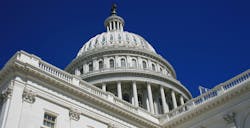Laboratory-developed tests are not the practice of medicine
The U.S. Food and Drug Administration’s (FDA) effort to regulate laboratory-developed tests (LDTs) has launched a debate that has, in many ways, polarized positions among clinical laboratories, diagnostic companies, physicians, and patient advocates. Two core issues are at the heart of the debate: Does the FDA have the legal authority to regulate LDTs, and if so, in what capacity? And, if the FDA has such authority, what does that mean for the future of Clinical Laboratory Improvement Amendments of 1988 (CLIA)?
In November 2014, the American Clinical Laboratory Association (ACLA) moved toward potential legal action against the FDA by hiring Paul Clement, the former U.S. Solicitor General, and Laurence Tribe, a Harvard professor of constitutional law. ACLA released a legal position paper authored by the two attorneys, stating that the FDA has no legal authority over clinical laboratory tests because such tests are the practice of medicine. Clement and Tribe argue that LDTs are performed either by physician laboratory directors or others, with test results provided to physicians for their use in treating patients, and that process constitutes the practice of medicine. In making their argument, Clement and Tribe point to existing statutory language that says the FDA is not to interfere with or regulate the practice of medicine.
Clement and Tribe’s assertion that LDTs are the practice of medicine is opposed by the American Association of Bioanalysts (AAB), whose membership largely consists of non-physician clinical laboratory directors, most of whom hold doctorate degrees. AAB responded to the Tribe/Clement paper with an analysis by AAB’s General Counsel, Jeffrey J. Sherrin, and Danielle E. Holley (http://www.aab.org/images/aab/pdf/2015/LDTs%20Not%20the%20Practice%20of%20Medicine_Final_sherrin_holley.pdf), explaining that LDTs are not the practice of medicine, and asserting that to say otherwise dismisses the essential role of PhD scientists in laboratory science and threatens their ability to direct clinical laboratories. For the past 43 years, the federal CLIA regulations, which apply to nearly all clinical laboratories, permit non-physicians to direct clinical laboratories, and CLIA specifies that the laboratory director is responsible for the overall operation and administration of the laboratory—including the employment of personnel who are competent to perform test procedures and record and report test results promptly, accurately, and proficiently—and for compliance with the applicable regulations.
Several past attempts by organized medicine to establish that clinical laboratory testing is the practice of medicine have failed. State courts in Pennsylvania and New York have ruled that clinical laboratory testing is not the practice of medicine and is not subject to regulation by state medical practice acts.
AAB highlights two fundamental flaws in the position raised by Clement and Tribe. The first is that the FDA is not seeking to regulate how physicians use LDTs to support clinical decision making, which is the practice of medicine; rather, the FDA is aiming to regulate the development of LDTs, with CLIA to oversee the laboratory performance of LDTs. The second flaw is that Clement and Tribe state that the use of LDTs may be regulated by CLIA; however, if LDTs are the practice of medicine, then they can only be regulated by state medical practice acts. Neither CLIA nor the FDA has regulatory jurisdiction over the practice of medicine.
AAB’s position on the regulation of LDTs is that these tests should not be regulated by the FDA as medical devices. AAB supports a separate regulatory pathway, both within the FDA for high-risk tests and through CLIA for moderate- and low- risk tests, paired with a formal stakeholder process to establish the risk level of LDTs. While AAB believes the FDA’s current proposal on the regulation of LDTs is unacceptable and should be rescinded, AAB also believes that laboratory stakeholders should refrain from opposing FDA oversight of LDTs by making legal arguments that would overturn nearly 50 years of established state case law and CLIA regulations permitting non-physician doctoral scientists to direct clinical laboratories.

